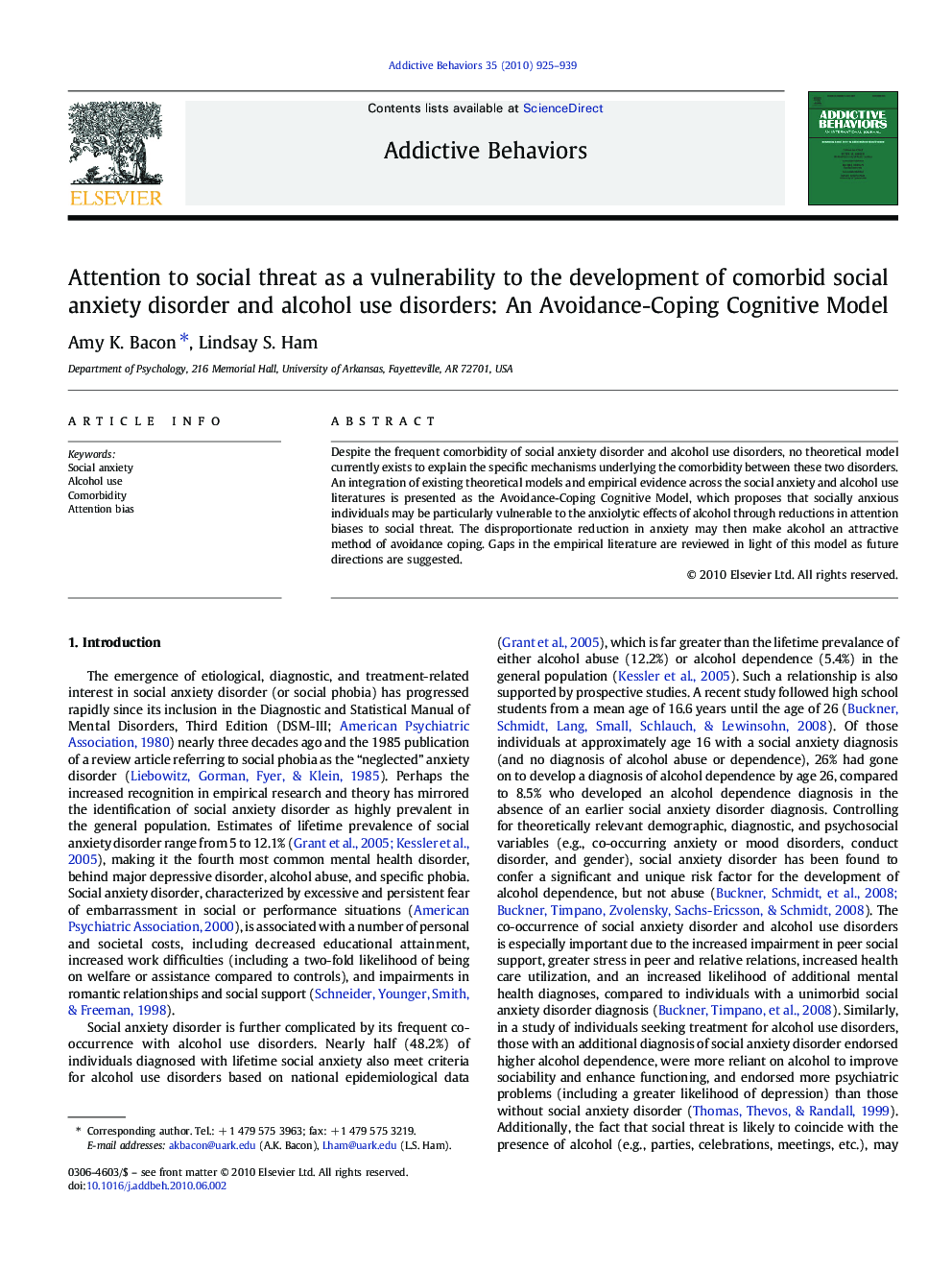| Article ID | Journal | Published Year | Pages | File Type |
|---|---|---|---|---|
| 899306 | Addictive Behaviors | 2010 | 15 Pages |
Despite the frequent comorbidity of social anxiety disorder and alcohol use disorders, no theoretical model currently exists to explain the specific mechanisms underlying the comorbidity between these two disorders. An integration of existing theoretical models and empirical evidence across the social anxiety and alcohol use literatures is presented as the Avoidance-Coping Cognitive Model, which proposes that socially anxious individuals may be particularly vulnerable to the anxiolytic effects of alcohol through reductions in attention biases to social threat. The disproportionate reduction in anxiety may then make alcohol an attractive method of avoidance coping. Gaps in the empirical literature are reviewed in light of this model as future directions are suggested.
